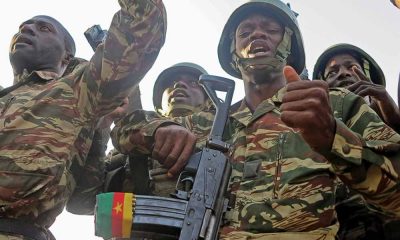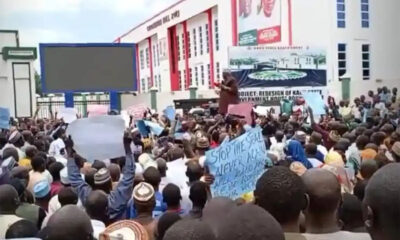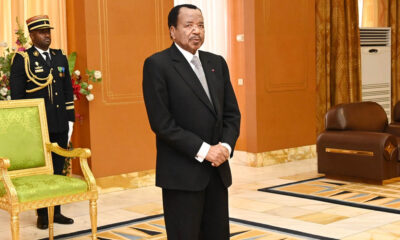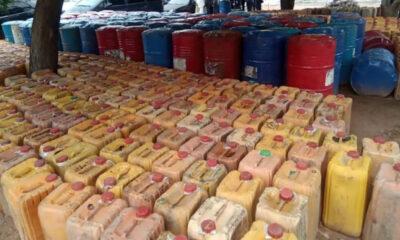metro
Tension At Nigerian Border Communities After Cameroon’s Encroachment

Dispute arising from implementation of the International Court of Justice (ICJ) in Hague judgment on boundary dispute between Nigeria and Cameroon is leading to a state of uncertainty for the Nigerian border population.
Following the October 2010 judgment, which ceded some Nigerian territories to Cameroon, the United Nations Secretary General established the Cameroon-Nigeria Mixed Commission (CNMC) in November 2002 at the request of President Paul Biya of Cameroon and his Nigerian counterpart, Olusegun Obasanjo, to implement the judgement.
The special representative of the Secretary General in West Africa and Sahel serves as the chairman of the body created to facilitate implementation of the judgment.
The commission’s mandate includes demarcation of the land boundary and delimitation of the maritime boundary between the two neighbouring countries, withdrawal of troops and transfer of authority in the Lake Chad area and in the Bakassi Peninsula, addressing the situation of populations affected by the demarcation activities as well as making recommendations on confidence-building measures to promote peaceful coexistence and cross-border cooperation.
The Security Council on August 15, 2013, celebrated the successful implementation of the Greentree Agreement on the settlement of the dispute over Bakassi and the achievement of the CNMC’s mediation effort.
Recent development in Kwaja, a border town between Nigeria and Cameroon, however, showed that the dispute may not be over in some areas and CNMC needs to address the situation.
Tension rose in the villages after a contractor handling the border demarcation project erected border signs several kilometres into the Nigerian territory.
READ ALSO:
- Police foil robbery attack on Dangote refinery in Lagos
- Nigeria Suffers $14bn Loss to Farmer-herder Clashes, Says Osinbajo
- Why I Dumped PDP For NNPP – Kwankwaso
This led to a protest on February 14 where hundreds of angry men carrying placards that read, “Maintain ICJ position, we agreed to the 1932 Thompson Marchand Declaration” thronged the streets asking for help from the Nigerian authorities against what they called, “external invasion’’.
The protesters who are residents of border villages in Adamawa State rejected attempts by Cameroon authorities to take over some villages after surveyors escorted by Cameroonian soldiers erected new border signs in Kwaja, Kinga, Jugruma, Fajawa and Girziya.
Altercation between protesting residents who halted the suspicious exercise and the foreign troops nearly degenerated into a bloody clash when the Francophone soldiers threatened to open fire on the unyielding anglophone civilians.
Locals said they had been in this state of uncertainty since 2016 when they became suspicious of the neighbouring country’s activities along the international border.
They, however, attributed the problem to Cameroon’s taking advantage of the CNMC to overstep its boundary as well as laxity on the part of Nigerian authorities to protect its boundary.
Some of the residents interviewed said they were shocked because Kwaja had never been part of Cameroon, adding that they preferred being in Nigeria. They said even some Cameroonian businessmen did not want the area to become part of Cameroon because of the low tax they enjoyed when they did business in Nigeria.
Spokesman of the community, Dr Ibrahim Kwaja, told our reporter that the whole area was shocked when news filtered that Cameroonians were marking the villages as part of their territory, saying the intrusion stirred discontent in the affected towns and villages.
He said the community had written a letter to the federal government and the Cameroon/Nigeria Mixed Commission (CNMC) seeking protection of their rights and interests, stressing that Kwaja and the surrounding areas have been part of northern protectorate since the amalgamation of Nigeria in 1914.
“The letter agrees with the Thompson Marchand declaration which the International Court of Justice accepts as the correct instrument defining the boundary in the Kwaja area as against the watershed line.
“We woke up to see soldiers and contractors erecting border signs. Ideally if you enter a community you should inform the people about your mission but they did not consult anybody. After all, they were told Kwaja was not part of the demarcation exercise.
“You know the 1914 amalgamation and 1932 Thompson Merchand put landmarks that clearly left Kwaja to Britain and Dumo to France. Over time, Cameroon encroached into the area,” he added.
READ ALSO:
- Kidnappers kill driver, abduct journalist, others
- K1 to Tinubu: Whenever you sneeze, everywhere catches cold
- Troops overrun IPOB, ESN hideout, recover arms, ammunition — Army
In a petition to the Attorney General of the Federation and Minister of Justice, the community accused Cameroon of mischievously uploading some of the affected villages on the Google Map as part of its territory, saying the development has dire economic implications on the people.
The community indicated its resolve to stick to the Thomson-Machand Declaration as the basis of the demarcation between Kwaja in Nigeria and Dumo in Cameroon, saying the four provisional landmarks which link to the River Tsikariri from Mount Mulkia covering about 15 kilometres served as the boundary between Kwaja in Nigeria and Dumo in Cameroon and those landmarks are conspicuous to the community.
The petitioners made reference to paragraph 26 and 27 of the Thompson Marchand Declaration on boundary delimitation between Kwaja (Nigeria) and Dumo (Cameroon), saying the four provisional land marks erected by Messrs Vereka and Pition in 1920 remained the referral point, saying the ICJ judgement was based on these facts.
They noted that the position of Nigeria to consider the watershed line as the basis of the boundary delimitation which is contrary to the Thomson-Machand declaration was as a result of the inability to identify the four provisional landmarks from the point of Mount Mulikia to the point of Tsikakiri at Mabboni beyond Dumo.
They added that on February 19, 2014, the community formally notified the National Boundary Commission and all the relevant authorities of the community’s readiness to assist in identifying the four provisional landmarks which were erected in 1920 and in 2019, when a delegation from the boundary commission visited Kwaja community in an effort to trace the landmarks.
“The four provisional landmarks were clearly identified, afterwards the commission gave Kwaja community the assurance that not an inch of its land will be ceded to Cameroon through the ongoing boundary exercise because all the evidence they have been looking for in respect to the THOMSON-MACHAND DECLARATION has been clearly identified”, the letter read.
To calm down tension, a delegation from the United Nations, the Nigeria’s National Boundary Commission and the Cameroon-Nigeria Mixed Commission visited Kwaja on March 1 to assure the people that their community was not part of the demarcation exercise.
Representative of the National Boundary Commission, Aliyu Ribadu, regretted the development, which he described as a mixup, saying the commission would investigate the persons responsible for erecting new border signs in the area.
The District Head of Gude, Sali Bello, said traditional rulers in the area had been making efforts to draw the attention of authorities involved in order to avert crisis, stressing the need for government to protect the Nigerian borders.
Jingi Rufai, the immediate past council chairman of Mubi South Local Council, said residents were disturbed when they saw Cameroonian soldiers along side members of the CNMC erecting demarcation signs in the villages and felt the area should not be part of Cameroon but their concerns have been communicated to the authorities in Abuja.”
DAILY TRUST
metro
Lagos govt clears traders from rail tracks at Bolade, Oshodi
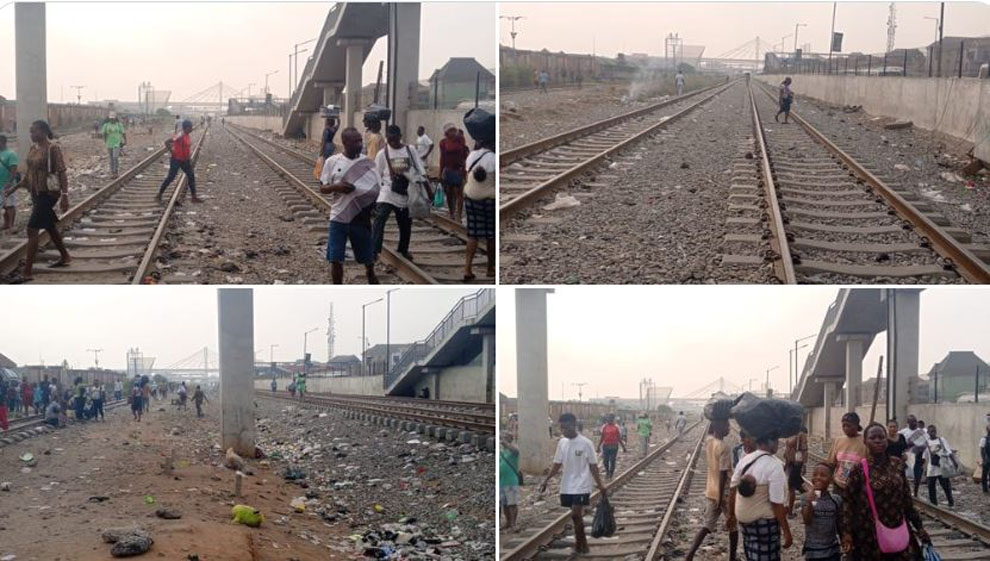
Lagos govt clears traders from rail tracks at Bolade, Oshodi
The Lagos State Government has removed traders operating on the rail tracks at Bolade, Oshodi, following a viral video that raised concerns about public safety.
The announcement was made by Tokunbo Wahab, Lagos State Commissioner for Environment and Water Resources, on Monday.
The clearance was done in collaboration with the Nigerian Army from the nearby Ikeja Cantonment.
Wahab’s statement read: “Following the viral video on social media, we’ve removed traders from the rail tracks at Bolade, opposite Arena Shopping Complex, in collaboration with Nigerian Army personnel from Ikeja Cantonment.”
READ ALSO:
- Four countries that won’t celebrate New Year
- Social media abuzz over Fayose claim of N50m donation to VeryDarkMan’s NGO
- Mexico recovers 31 bodies from secret graves
The viral video, originally shared on X (formerly Twitter) by a user identified as @dipoaina1 on December 28, depicted scenes of buying and selling taking place perilously close to the railway tracks.
The footage showed an NRC train on the Lagos-Ibadan rail track passing by as people continued their activities undeterred. The post highlighted the dangers posed by the lack of barriers, with @dipoaina1 suggesting the railway route be fenced with barbed wire to prevent such risky behavior.
The government’s swift response underscores its commitment to ensuring public safety and maintaining order around critical infrastructure. This move also aligns with broader efforts to address safety challenges associated with urban rail transportation in Lagos. However, the incident highlights the need for sustained proactive measures rather than reactive actions to prevent future occurrences.
Lagos govt clears traders from rail tracks at Bolade, Oshodi
metro
Four countries that won’t celebrate New Year
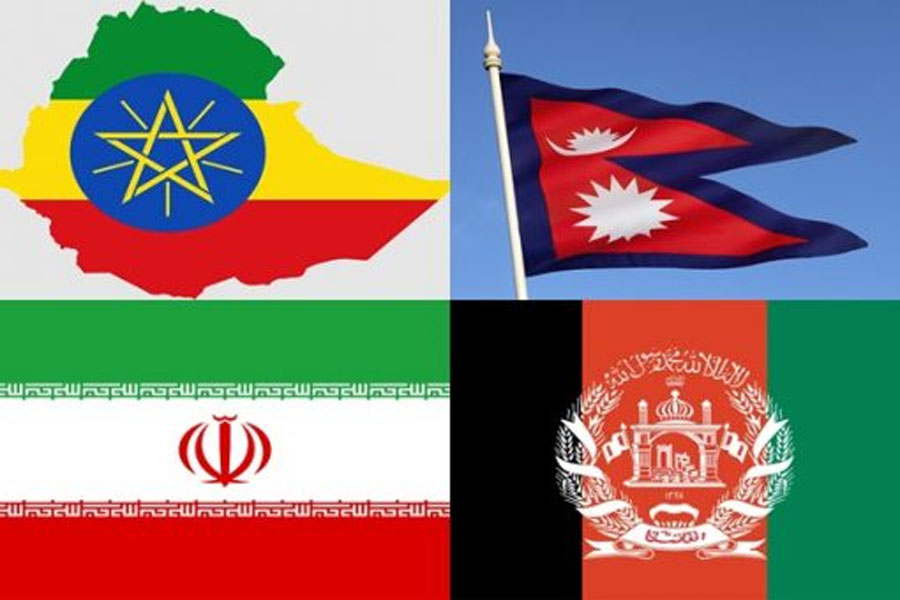
Four countries that won’t celebrate New Year
In less than 12 hours, countries around the world will be celebrating a New Year – 2025.
However, there are some countries that will not join in the celebration as their calendars differ from the rest of the worlds’.
Ethiopia, Nepal, Iran, and Afghanistan are four countries that won’t be celebrating New Year’s Day 2025.
Ethiopia is a land of ancient traditions and unique cultural identities, including its own calendar system. The Ethiopian calendar, based on the Coptic calendar, comprises 13 months—12 of which have 30 days, while the 13th month, Pagumē, has five or six days depending on the leap year.
The Ethiopian New Year, known as Enkutatash, falls on Meskerem 1, which corresponds to September 11 or 12 in the Gregorian calendar. Interestingly, Ethiopia is about seven to eight years behind the Gregorian calendar, meaning that as the rest of the world enters 2025, Ethiopia will still be in 2017.
READ ALSO:
- Social media abuzz over Fayose claim of N50m donation to VeryDarkMan’s NGO
- Mexico recovers 31 bodies from secret graves
- FCT police recover huge firearms from suspect after shooting incident
Nepal embraces two traditional calendar systems—Vikram Samvat and Nepal Sambat—making it one of the most unique timekeeping cultures globally. Vikram Samvat, a lunisolar calendar, is the official calendar of Nepal and is approximately 57 years ahead of the Gregorian calendar.
Additionally, the Nepal Sambat, a lunar calendar, is used by the Newar community and runs on its own timeline, adding another layer of distinction to the nation’s calendar traditions. The official New Year celebration in Nepal, called Bisket Jatra, typically falls in April. Hence, January 1 is not a significant date in Nepal.
Iran follows the Solar Hijri calendar, which is one of the most accurate solar calendars in the world. This system begins with the vernal equinox, marking the first day of spring. The Iranian New Year, known as Nowruz, falls around March 21 and is celebrated with elaborate customs and rituals that date back over 3,000 years.
For Iranians, January 1 is an ordinary winter day, with their focus firmly set on the arrival of spring and the renewal it symbolises.
Afghanistan also uses the Solar Hijri calendar, aligning its timekeeping closely with Iran. Similarly, Nowruz marks the New Year in Afghanistan, celebrated with feasts, family gatherings, and cultural events.
Afghanistan’s rich history and adherence to its traditional calendar reflect its cultural pride and resistance to adopting the Gregorian system, making it one of the few nations where January 1 holds no special significance.
Four countries that won’t celebrate New Year
metro
Social media abuzz over Fayose claim of N50m donation to VeryDarkMan’s NGO
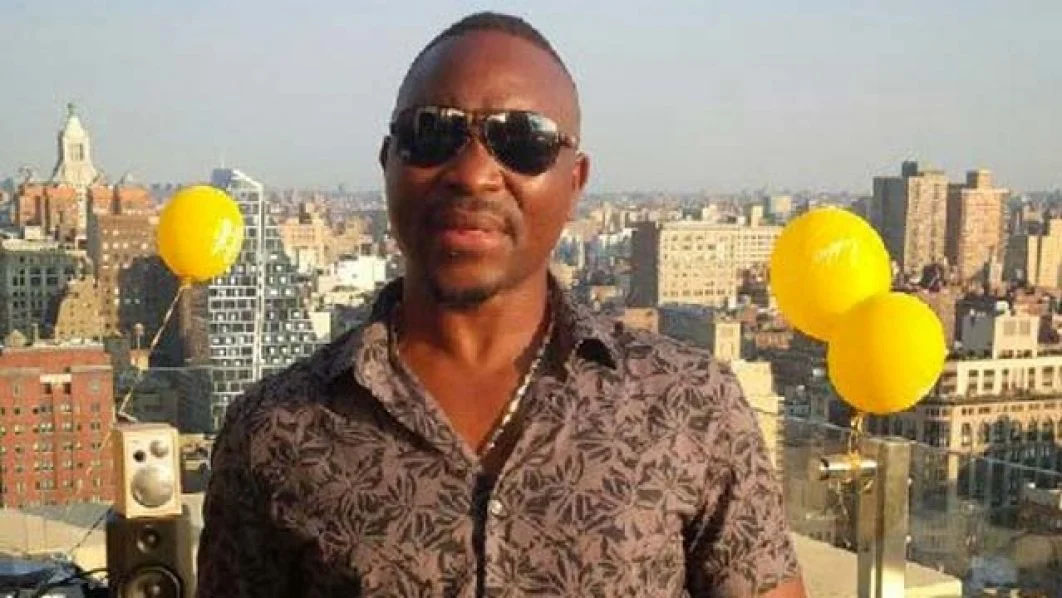
Social media abuzz over Fayose claim of N50m donation to VeryDarkMan’s NGO
Social media was set abuzz on the cusp of the new year when Isaac Fayose, the entrepreneur and younger brother to former Ekiti State Governor Ayo Fayose, claimed he had donated a staggering N50 million to the NGO of popular activist VeryDarkMan.
In a post that blended philanthropy with a touch of mischief, Fayose teased followers with the declaration, describing it as both a “prank” and a “blessing.”
However, the announcement didn’t land smoothly with everyone. While some praised Fayose’s generosity, others demanded proof of the hefty donation.
READ ALSO:
- Mexico recovers 31 bodies from secret graves
- FCT police recover huge firearms from suspect after shooting incident
- Nigeria on life support when Tinubu took office – Akpabio
“Show us the evidence,” a skeptical follower urged, echoing the sentiment of many. “Without proper investigation, it’s wrong to just believe such claims.”
The skepticism grew as other comments poured in. “Send a receipt, even if it’s fake, before we Ekiti people fall for this prank,” one user joked, while another humorously quipped, “Statement of account or no deal!”
Some followers, however, leaned into the fun side of the announcement. A playful comment from one admirer read, “I’m proud of you, baby. I’ll donate my kidney to you!” Meanwhile, others took a more serious tone, questioning why Fayose didn’t spearhead his own initiative instead of supporting another.
Fayose’s post, now a viral topic, continues to draw both laughter and criticism. While the jury is still out on the truth of the donation, one thing remains certain—Isaac Fayose knows how to get people talking.
Social media abuzz over Fayose claim of N50m donation to VeryDarkMan’s NGO
-

 Politics2 days ago
Politics2 days agoGbajabiamila speaks on his rumoured Lagos governorship ambition
-

 metro2 days ago
metro2 days agoFarotimi to pursue disbarment over arrest, defamation allegations
-

 Business2 days ago
Business2 days agoReal reason Dangote, NNPC drop petrol price — IPMAN
-

 Health2 days ago
Health2 days agoABU Teaching Hospital will begin kidney transplant in 2025 – CMD
-

 International3 days ago
International3 days agoBREAKING: Plane skids off runway in South Korea, killing at least 120
-

 Sports16 hours ago
Sports16 hours agoAnthony Joshua prostrates before Governor Abiodun during Ogun visit
-

 metro2 days ago
metro2 days agoEl-Rufai accuses Tinubu govt of Yoruba agenda, Reno Omokri reacts
-

 metro2 days ago
metro2 days agoNigerian govt urged to intervene in Mozambique post-election violence



